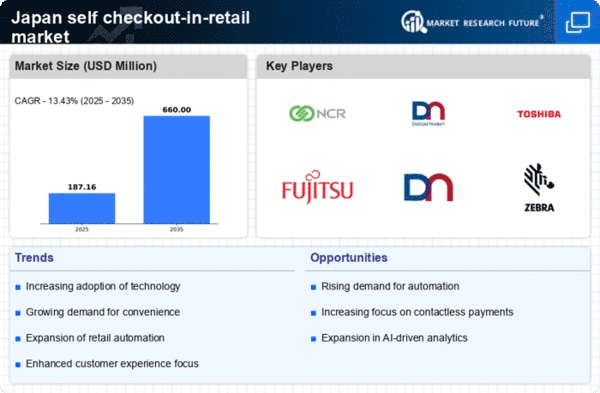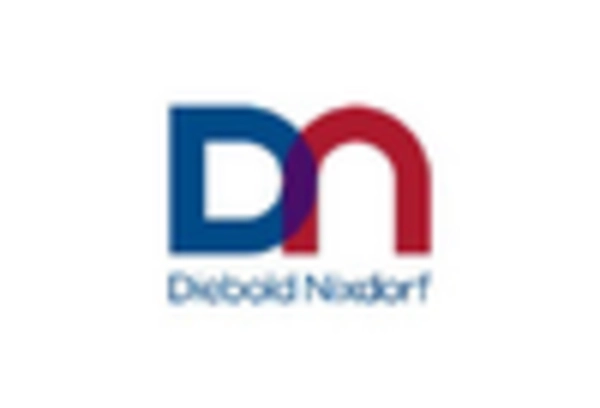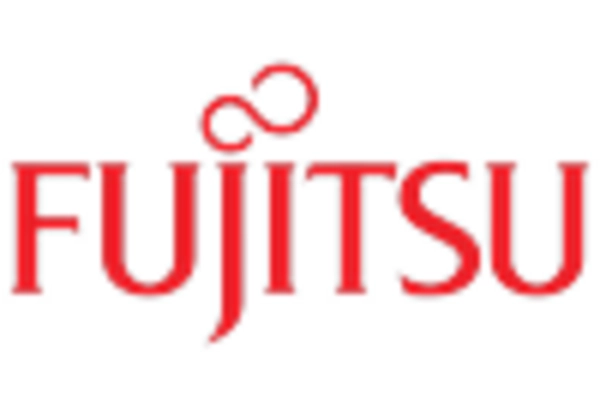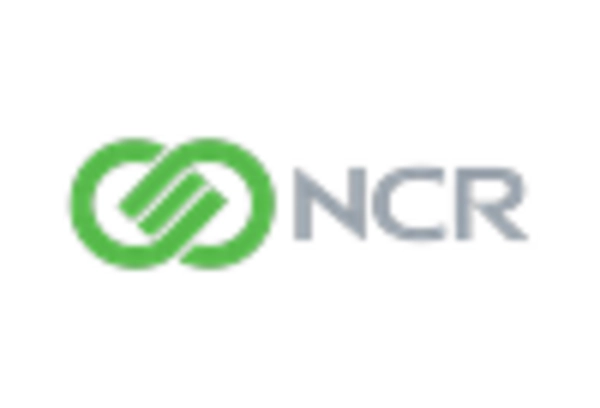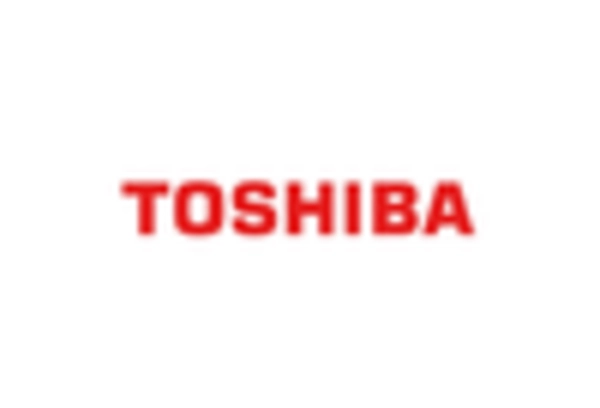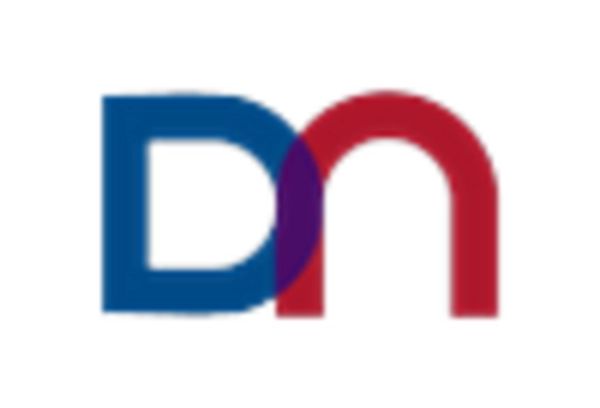Rising Labor Costs
The self checkout-in-retail market in Japan is experiencing a notable shift due to rising labor costs. As wages increase, retailers are compelled to seek cost-effective solutions to maintain profitability. The implementation of self checkout systems allows retailers to reduce the number of staff required at checkout points, thereby lowering operational expenses. In 2025, labor costs in the retail sector are projected to rise by approximately 3.5%, prompting many retailers to invest in self checkout technology. This trend not only helps in managing costs but also enhances efficiency, as customers can complete transactions at their own pace. Consequently, The self checkout-in-retail market is likely to expand as more retailers adopt these systems. This adoption helps counteract rising labor expenses..
Government Support for Automation
Government support for automation in the retail sector is emerging as a significant driver for the self checkout-in-retail market in Japan. Initiatives aimed at promoting technological innovation and efficiency are encouraging retailers to adopt automated solutions. The Japanese government has introduced various programs to support businesses in integrating advanced technologies, including self checkout systems. In 2025, it is anticipated that government funding for automation projects will increase by 25%, providing retailers with the financial resources needed to implement these systems. This support not only facilitates the transition to automated checkout solutions but also enhances the overall competitiveness of the retail sector. As a result, the self checkout-in-retail market is likely to experience substantial growth.
Shift Towards Contactless Shopping
The shift towards contactless shopping is a prominent driver of the self checkout-in-retail market in Japan. As consumers become more health-conscious and seek to minimize physical contact, self checkout systems offer a viable solution. Retailers are increasingly adopting these systems to facilitate a safer shopping environment, allowing customers to complete transactions without direct interaction with staff. In 2025, it is projected that the demand for contactless payment options will increase by 40%, further propelling the adoption of self checkout technology. This trend not only addresses consumer concerns regarding hygiene but also aligns with the broader movement towards digitalization in retail. Consequently, the self checkout-in-retail market is expected to benefit from this growing preference for contactless solutions.
Consumer Preference for Convenience
In Japan, there is a growing consumer preference for convenience, which significantly impacts the self checkout-in-retail market. Shoppers increasingly favor quick and efficient shopping experiences, leading to a rise in the adoption of self checkout systems. According to recent surveys, around 65% of consumers express a desire for faster checkout options, indicating a shift in shopping behavior. This trend is particularly evident among younger demographics, who are more inclined to utilize technology for a seamless shopping experience. Retailers are responding by integrating self checkout solutions to cater to this demand, thereby enhancing customer satisfaction and loyalty. As convenience continues to be a priority for consumers, the self checkout-in-retail market is expected to thrive.
Technological Advancements in Retail
Technological advancements are playing a crucial role in shaping the self checkout-in-retail market in Japan. Innovations such as artificial intelligence, machine learning, and mobile payment solutions are enhancing the functionality and user experience of self checkout systems. For instance, AI-driven systems can now recognize products through image scanning, reducing the time spent on manual input. In 2025, it is estimated that the market for retail technology in Japan will reach approximately $10 billion, with self checkout systems being a significant contributor. These advancements not only streamline the checkout process but also provide valuable data analytics for retailers, enabling them to optimize inventory and improve customer engagement. As technology continues to evolve, the self checkout-in-retail market is likely to see further growth.


